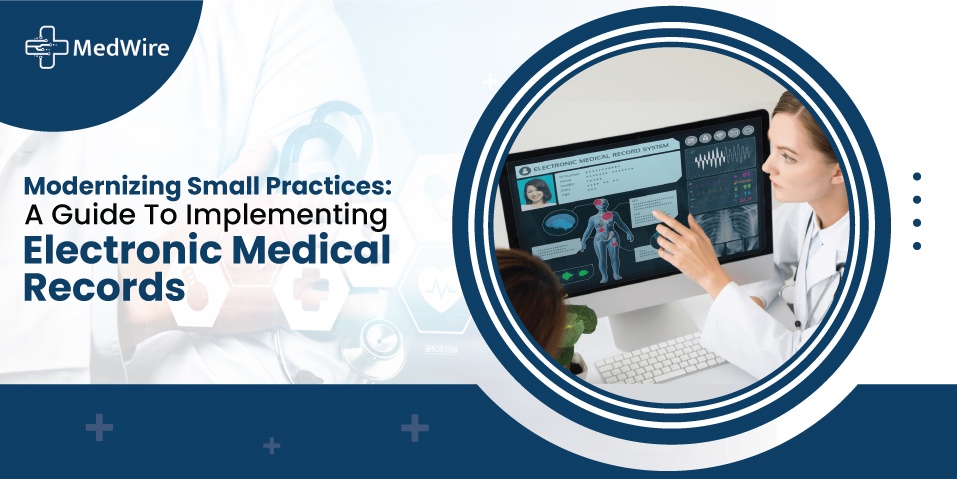Adopting and implementing electronic medical records (EMRs) in small medical practices can be daunting. Small practices may have limited resources and experience in technology, making the transition to EMRs a significant challenge.
However, the benefits of EMRs are well-documented, and small practices can leverage the power of technology to improve patient care, streamline operations, and reduce costs.
Benefits of EMRs for Small Practices
- EMRs can provide a centralized location for all patient records, reducing the need for paper records and physical storage space.
- EMRs also improve accessibility, allowing healthcare providers to access patient records from anywhere via the internet. EMR can be especially beneficial for small practices with multiple locations or healthcare providers who work remotely.
- EMRs can provide real-time access to patient records, allowing healthcare providers to make informed decisions about patient care.
- EMRs can also reduce medical errors by providing automated alerts for medication interactions, allergies, and other potential risks.
Challenges of Implementing EMRs in Small Practices
Implementing EMRs in small practices can be challenging due to the lack of resources and expertise in technology. However, there are a few steps small practices can take to ensure a successful implementation. The first step is to identify the right EMR system. Small practices should consider the features and functionality of each EMR system and determine which system best meets their needs.
Selecting the Right EMR System for Small Practices
Once an EMR system has been selected, small practices should develop an implementation plan. This plan should include training for healthcare providers and staff and a timeline for implementation. It is also important to involve healthcare providers and staff in the implementation process, as they will use the system daily.
Small practices should also consider the costs of implementing EMRs. EMRs can be expensive, and small practices may not have the resources to invest in a new system. However, there are options available for small practices, such as cloud-based EMR systems, which can reduce costs by eliminating the need for on-site servers and IT staff.
One of the most significant challenges small practices may face when adopting EMRs is data security and privacy. EMRs contain sensitive patient information, and small practices must take steps to protect this information. EMR may include implementing secure access controls, regular data backups, and data encryption in transit and at rest.
Finally, small practices should consider the potential for interoperability between different EMR systems. Interoperability allows healthcare providers to share patient information across different systems, improving collaboration and communication between healthcare providers. Interoperability can be especially beneficial for small practices that refer patients to other healthcare providers or hospitals.
Conclusion: Why EMRs are Essential for Small Practices
In conclusion, adopting and implementing EMRs in small practices can be challenging, but the benefits are well worth the effort. EMRs can improve patient care, streamline operations, and reduce costs, making them an essential tool for small practices.
By selecting the right EMR system, developing an implementation plan, and ensuring data security and privacy, small practices can successfully adopt and implement EMRs to improve patient care and stay competitive in today's healthcare landscape.
MedWire EMR offers several benefits to small practices, including improved efficiency, accuracy, patient care, communication, and cost-effectiveness. It streamlines administrative tasks, such as scheduling appointments and managing patient records, reducing the workload for healthcare providers. MedWire EMR is a cost-effective solution offering a range of benefits to small practices seeking to streamline operations and improve patient care.
In case you have found a mistake in the text, please send a message to the author by selecting the mistake and pressing Ctrl-Enter.
You must be logged in to comment.
Sign In /
Sign Up


No comments yet